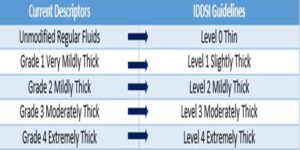Coming up in the Irish Heart Foundation
Some events coming up in the next few months
Read MoreSwallowing problems (also known as “dysphagia”) happen when you have difficulty moving foods and/or drinks from your mouth to your food-pipe. Around 5 per cent of the general population will have trouble swallowing at some point during their life, with people who have certain medical conditions such as stroke, Parkinson’s disease, dementia and head and neck cancer reporting these problems more frequently.
People with heart conditions such as congestive heart failure or ischaemic heart disease can also sometimes experience swallowing problems and may report a range of symptoms including, coughing or choking on foods and fluids, fatigue and breathlessness during meals, reduced food or fluid intake, weight loss or chest infections. These issues can not only impact on a person’s physical health but can also affect their quality of life, socialisation, and enjoyment of eating.
Some people with swallowing problems need to take “softer” foods, which require less chewing or “thicker” drinks, which are easier and safer to swallow. These modified foods and fluids are typically recommended by a Speech and Language Therapist (SLT) after a clinical examination.
In Ireland, patients with dysphagia were previously advised to take different “textures” of diets (e.g.: texture A soft diet or texture B minced and moist diet) based on their specific needs. If patients needed modified drinks, they were advised to take different “grades” of fluids, based on the thickness of the liquid (e.g.: grade 1-4 fluids). These labels were used across Ireland, but different names were used in other countries, leading to confusion among patients, caregivers, clinicians, and researchers.
Some people with swallowing problems need to take “softer” foods, which require less chewing or “thicker” drinks, which are easier and safer to swallow
What is IDDSI?
To reduce this confusion, the International Dysphagia Diet Standardization Initiative framework (IDDSI) has developed new common terms to describe food textures and drink thickness. This aims to improve global safety of and communication about modified foods and drinks, with the ultimate goal of improving dysphagia care. This framework will be rolled out across Ireland between September 2019 and April 2020.
What does the IDDSI changeover mean for me?
If you or your loved one are currently taking modified foods and fluids, the way that you talk about and prepare these items may change. The first change to be aware of is the new language and labelling that will be used to describe foods and drinks.
What about food?
Foods will now be classified as different “levels”, rather than “textures” (see table below).
| Current Descriptors | IDDSI Guidelines |
| Unmodified: Regular Foods
|
Level 7: Regular
Level 7a: Regular Easy to Chew |
| Texture A: Soft | Level 6: Soft and Bite-Sized |
| Texture B: Minced and Moist | Level 5: Minced and Moist |
| Texture C: Smooth Pureed | Level 4: Pureed |
| Texture D: Liquidized | Level 3: Liquidized |
The key change from previous Irish labels include the use of separate “easy to chew” and “soft and bite–sized” levels. If you or your loved one are taking a modified diet, your SLT will be able to provide up-to-date information on the safest consistency to continue taking.
If you or your loved one are currently taking modified foods and fluids, the way that you talk about and prepare these items may change.
What about fluids?
The way that we describe the thickness of fluids will also change from “grades” to “levels” (see table below).

Although these names have not changed too much, the way that you prepare your drinks may now be different. For example, the type of scoop that you use and the number of scoops of powder that you need to add to a drink may change, depending on the thickening product that you.
The labelling on new tins of thickener will now use the IDDSI terminology. New tins will have visible information stickers on their lids that you should follow carefully to help you make the right choice.
Finally, some people with dysphagia use pre-thickened drinks. With the IDDSI changeover, it is important that you consult your healthcare provider as the names and labelling of these drinks may change.
If you or your loved one have been recommended thickened fluids, your SLT will be able to provide information on how to continue to prepare the safest fluids.
What should I do if I have concerns about IDDSI?
If you are concerned about what the IDDSI changeover means for you or your loved one, you can consult your healthcare provider (e.g.: your GP, SLT, or dietician) for updated advice on modified foods and fluids. If you notice new symptoms such as: coughing, choking, or sneezing during meals, wet or “gurgly” voice, raised temperature, chest infections, please consult your GP and SLT for a medical and swallowing review.
2025-06-20